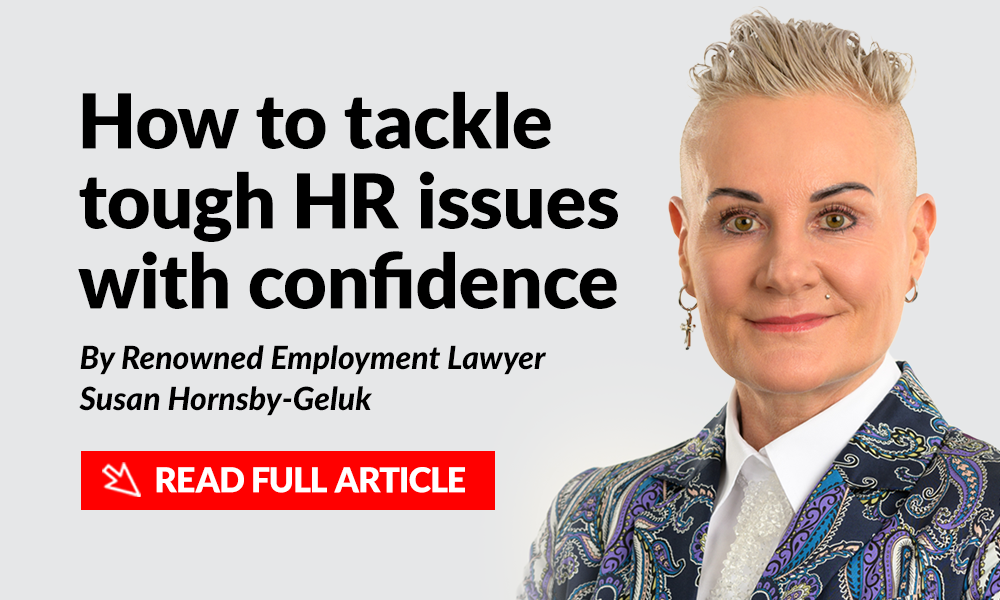
Expert offers tips on handling disciplinary processes, investigations and performance issues

The field of human resources and employment law is dynamic and rewarding – however, there are undeniably aspects of the job that nobody enjoys. Disciplinary processes, disputes and performance issues can leave businesses in a difficult position, particularly if they are not properly handled from the outset.
According to Susan Hornsby-Geluk, employment law specialist and managing partner at Dundas Street, knowing how to handle performance and disciplinary processes is especially vital today. The flow-on effects from COVID-19 are still being felt, and many businesses are struggling financially. This has led to redundancies, and to increased scrutiny on conduct and performance.
Government agencies are also having to do more with less. As of June 2024, over 5800 public service roles have been (or are proposed to be) disestablished. In this environment, Hornsby-Geluk says that knowing how to handle processes properly is crucial – and if you don’t, then you should know when to seek guidance.
Employment law has evolved significantly over the last decade. Processes have generally become more complex, best practices have changed, and an employer’s understanding of ‘good conduct’ has also matured.
“What may have been acceptable conduct 10 or even five years ago, may not be now,” Hornsby-Geluk tells NZ Lawyer.
“The processes required in undertaking disciplinary investigations have become increasingly complex, and at the same time there has been a clear creep upwards in the levels of compensation awarded by the Authority and Court when employers get it wrong.”
When initiating processes like investigations, Hornsby-Geluk says the starting point is to clearly articulate the issues and allegations, as well as the process that will be followed in dealing with them.
“A terms of reference will assist in achieving this,” she explains.
“The employee must then be given a full and fair opportunity to respond to the allegations in a way that demonstrates that the investigator has not pre-determined the matter and has an open mind.”
As an employment law expert, Hornsby-Geluk has seen firsthand what happens when the process goes wrong. She notes that the most common pitfalls in such processes include the employee not being given all relevant information before being asked to respond, introducing new allegations during the process, and the decision maker failing to establish the evidential basis for their views.
She notes that there will be instances where seeking guidance at the outset will likely save cost down the track. This is one of the topics that Hornsby-Geluk will be exploring in her upcoming webinar on 24 September, Mastering Performance and Disciplinary Processes in Employment, run in partnership with LexisNexis NZ.
The webinar will explore various challenges that businesses may face with regards to disciplinary processes; for example, handing anonymous complaints, the non-negotiable steps in investigations, and when to bring in external investigators. It has been designed to give businesses confidence in dealing with potentially tricky situations, and to understand the latest regulations and best practices.
“The webinar will highlight the difficult issues in processes of this nature and provide practical advice about how to address them,” Hornsby-Geluk says.
“It will also identify key decision points and how to reduce legal risk and costly consequences.”
To find out more and to register for the webinar, click HERE.